Everything You Need to Know About Insulated Garage Doors in Texas
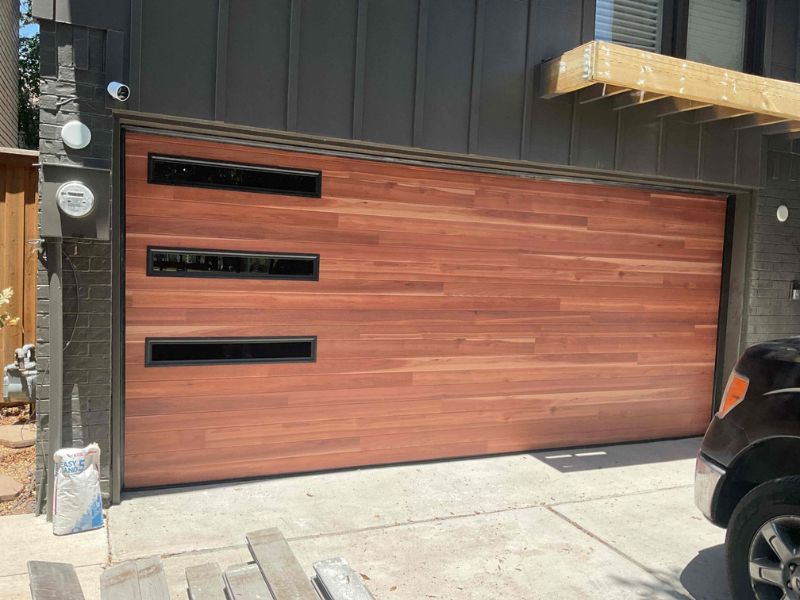
Texas is known for its harsh weather conditions. Houston has a humid subtropical climate, Austin has hot summers with occasional cold snaps, and the DFW area experiences extreme heat with a rare freeze. These weather conditions can increase energy bills as HVAC systems work to cool and heat Texas homes.
Although you may be familiar with ways to improve your home’s energy efficiency regarding heating and cooling, one aspect you might not have considered is garage door insulation. Insulation can make your Texas garage door more energy efficient.
In this blog post, we’ll explore common types of garage door insulation and how they can benefit your Texas home.
Why Insulated Garage Doors Are Essential in Texas
Texas often experiences intense heat with the occasional cold weather. Insulated garage doors in Texas can reduce heat gain in hot weather and heat loss during cold weather. This helps make garages more comfortable and energy efficient.
Key Benefits of Insulated Garage Doors for Texas Homes
Insulated garage doors offer several benefits for Texas homes, whether you live in Houston’s Heights, Austin’s Zilker, or Arlington’s Viridian. Please note that these benefits can vary based on the insulation type.
The following are a few examples of the benefits.
Improved Energy Efficiency
If a garage is climate-controlled or attached to a home, an HVAC system may need to work extra hard to heat or cool it due to the heat that enters or exits through the garage door. An insulated garage can enhance energy efficiency and provide savings on heating and cooling bills while benefiting the environment.
Increased Garage Door Durability
Insulation can increase a garage door’s durability. While it won’t make a garage door invincible, insulation may be able to protect a garage door from hail, strong winds, and more.
Reduced Noise
Garage door insulation can reduce the noise heard from outside your garage door and may even make the garage door function quietly.
Types of Insulation Materials for Garage Doors
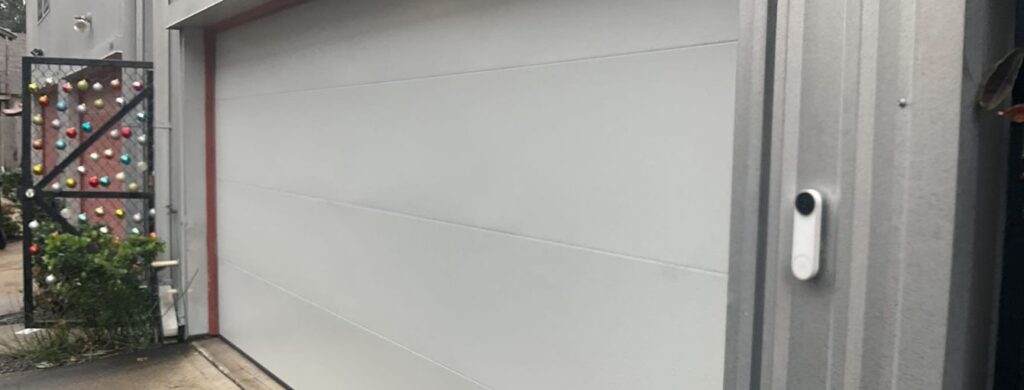
Garage door insulation is available in a variety of materials.
The following are a few common types of garage door insulation and some of their advantages and disadvantages.
Polyurethane Foam
Polyurethane comes in spray foam and board form. To keep things simple, we’ll be focusing on the spray foam version here. Foam-based polyurethane hardens after it has been sprayed on a garage. The consistency of the hardened material enhances the garage door’s durability.
Pros
- Excellent sound insulation
- Excellent energy efficiency
- Excellent thermal insulation
- Better garage door durability
- Moisture resistant
Cons
- Doesn’t do well in cold weather
Polystyrene Panels
Polystyrene insulation comes in boards. While it is less efficient than polyurethane foam insulation, it tends to be less expensive. Polystyrene panels offer water resistance; however, they may have energy efficiency-reducing air gaps.
Pros
- Water resistant
- Good energy efficiency
- Less expensive than polyurethane foam insulation
- Good thermal resistance
- Moisture resistant
- Lasts a long time
- Less vibration when the garage door opens and closes
Cons
- Can have efficiency-reducing air gaps
- Weaker and may break easily
Fiberglass
Fiberglass insulation comes in batts or rolls. Its installation process is similar to that of polystyrene, as it is fitted to door sections. It does a good job of reducing sound and heat transfer.
Pros
- Reduces noise well
- Good thermal resistance
- Affordable
- Offers fire-resistance
Cons
- Poor moisture resistance
- Fiberglass insulation may cause skin and eye irritation
Reflective
Unlike other types of insulation, reflective insulation doesn’t absorb radiant heat, but instead reflects it. Because of this, reflective insulation doesn’t have an R-value. While it performs well in hot temperatures, it isn’t effective in the cold and may need an additional insulation type.
Pros
- Least expensive form of garage door insulation
- Easy to install
- Lightweight and is easy on garage doors
- Reflects heat well
Cons
- Doesn’t do well in cold weather
Choosing the Best Insulated Garage Door for Houston, Austin, and DFW
Polyurethane foam works best for the garage doors of Houston, Austin, Sherman, and DFW due to its effectiveness in hot and cold temperatures as well as increased garage door durability. However, it costs more than other insulation types. If the initial cost is a concern, it’s a good idea to contact a garage door specialist who works with insulation. They can help you find the best garage door insulation for your situation.
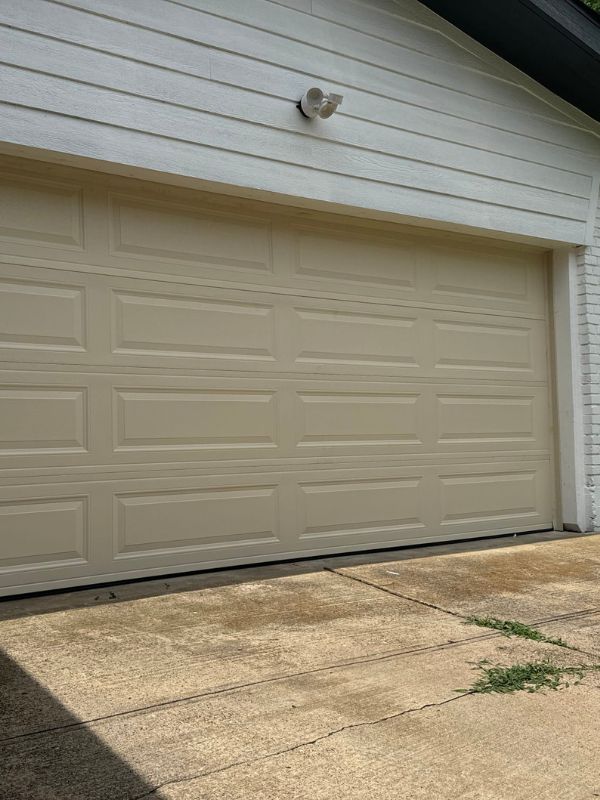
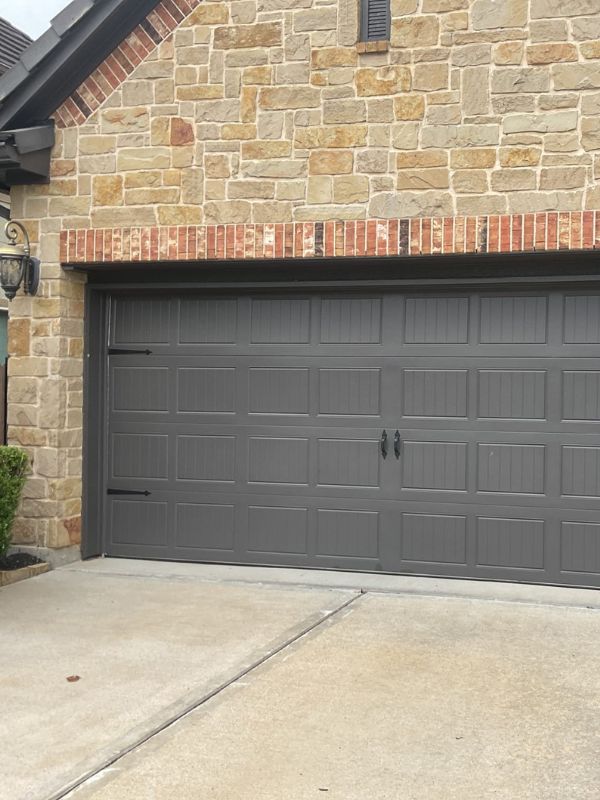
Expert Installation and Maintenance by Action Garage Door
If you’re located near our locations in the DFW, Austin, Sherman, or Houston areas, we can help you with your garage door insulation. As a company with deep roots in Texas, with over 40 years in business, we understand the challenges of Texas weather and can provide tailored garage door insulation solutions. Whether you want a garage door insulated with factory-equipped insulation or insulation that is added to an existing garage door, the professionals at Action Garage Door Repair Specialists can help you.
We’ve been in business since 1984 and are accredited by the Better Business Bureau. Our company has received many five-star reviews across our locations for our garage door installation and maintenance services.
Contact us for garage door insulation installation or maintenance.
Additional Resources:
- Comprehensive Texas Garage Door Maintenance Checklist
- Garage Door Makeover: Transforming Your Home’s Exterior
- Smart Garage Solutions: The Latest Technology for Your Garage Door
- Securing Your Home: The Ultimate Guide to Garage Door Safety
- Is It Time to Replace Your Outdated Garage Door? Signs and Benefits


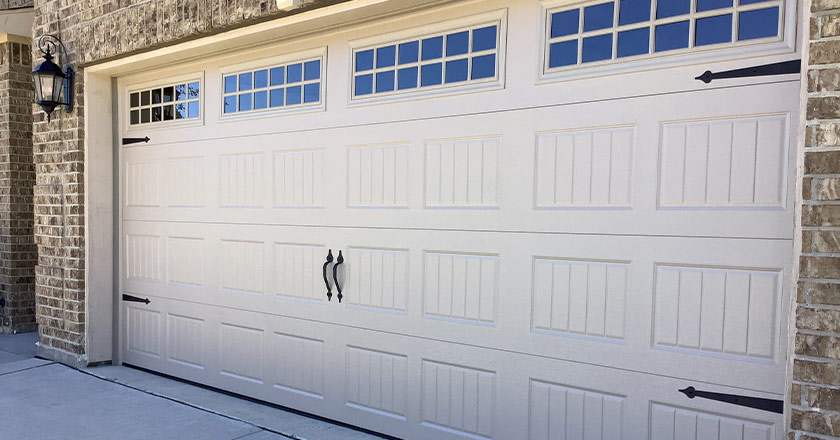
 Rated
Rated